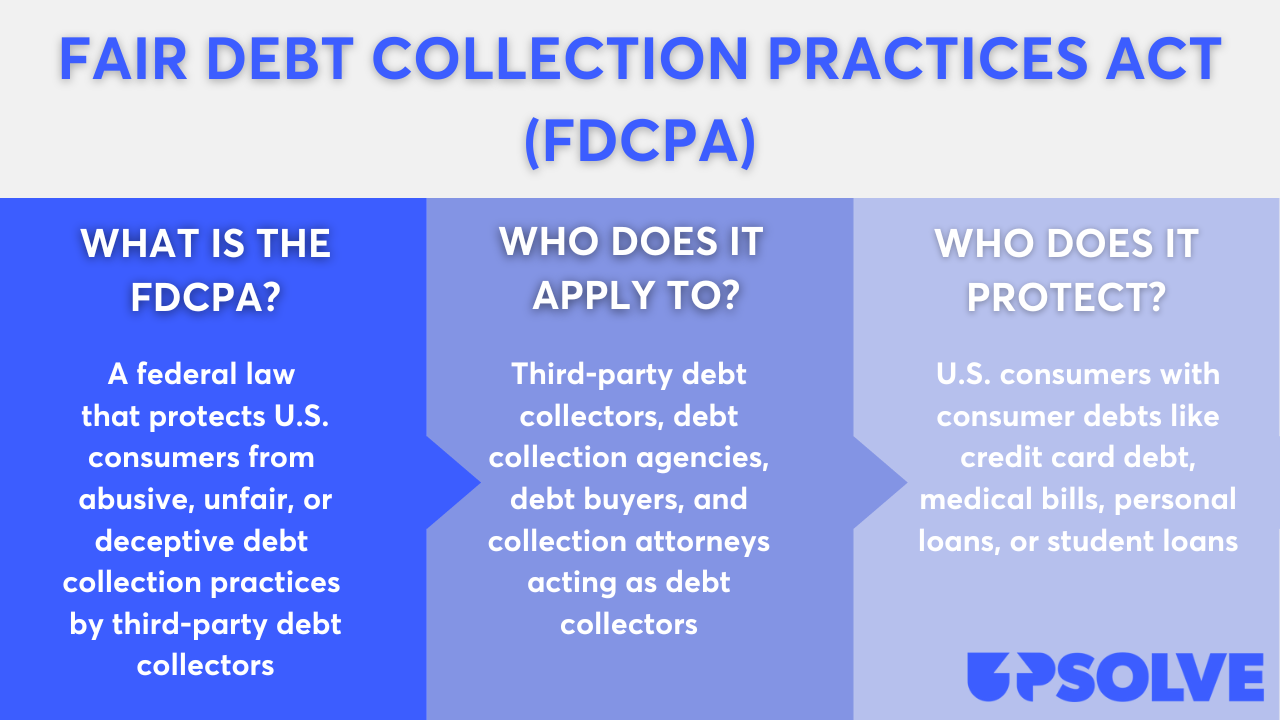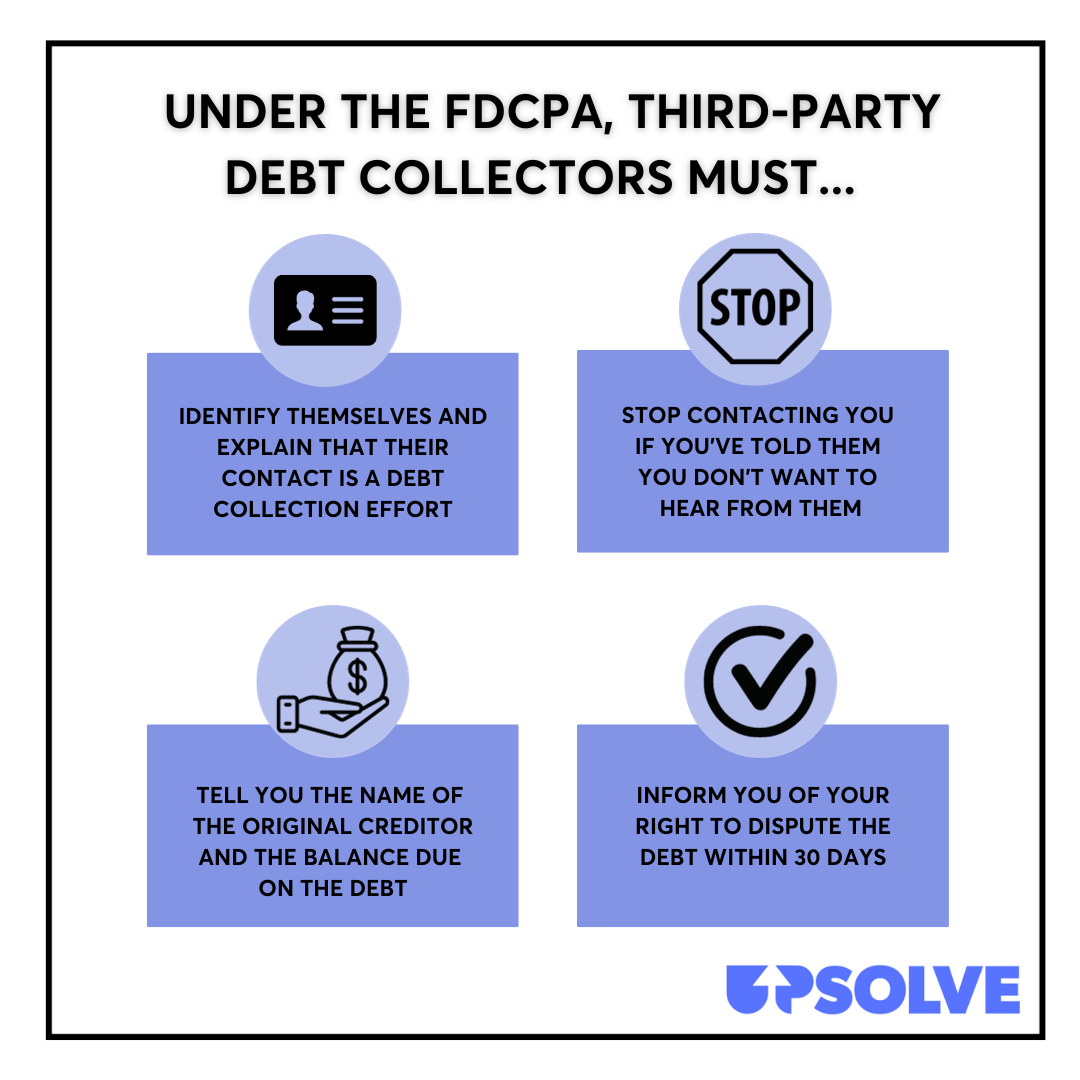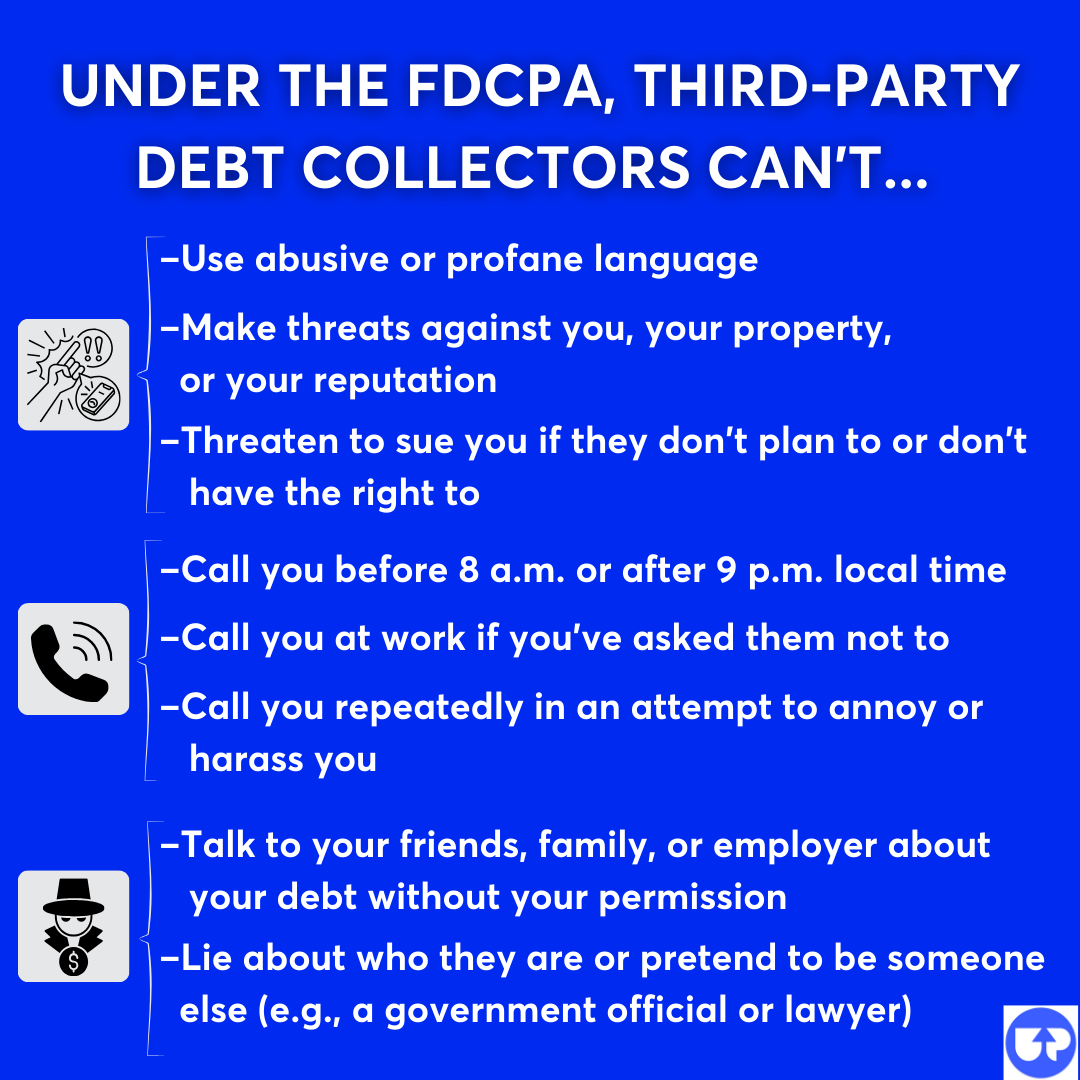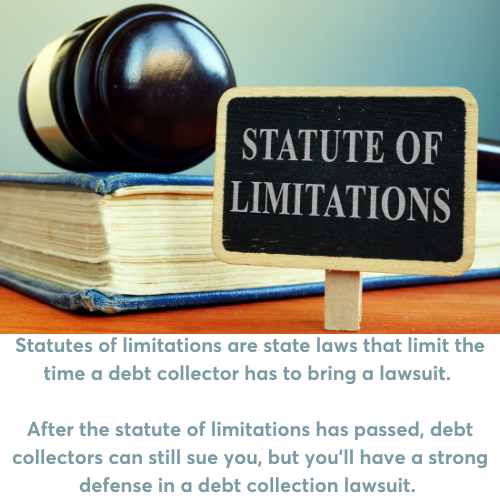Your Guide to Colorado’s Debt Collection Laws
Upsolve is a nonprofit that helps you eliminate your debt with our free bankruptcy filing tool. Think TurboTax for bankruptcy. You could be debt-free in as little as 4 months. Featured in Forbes 4x and funded by institutions like Harvard University — so we’ll never ask you for a credit card. See if you qualify →
Colorado has two important state laws that help protect consumers: the Colorado Fair Debt Collection Practices Act (CFDCPA) and the Colorado Uniform Consumer Credit Code (UCCC). The CFDCPA protects consumers against third-party debt collector harassment and other bad behavior. The UCCC helps ensure consumers know the details of their debt and are treated fairly by lenders and creditors.
Written by Upsolve Team.
Updated September 16, 2025
Table of Contents
What Are the Debt Collection Laws in Colorado?
Debt collectors are required to follow federal and state laws when trying to collect a debt from you. Colorado residents are protected by three main consumer protection laws:
The federal Fair Debt Collection Practices Act (FDCPA)
The Colorado Fair Debt Collection Practices Act (CFDCPA)
The Colorado Uniform Consumer Credit Code (Colorado UCCC)
Your Rights Under the Federal Fair Debt Collection Practices Act (FDCPA)
The FDCPA is a federal law that provides sweeping protection for consumers across the U.S. Here’s an overview of the law:

Under the FDCPA, you have certain rights, and third-party debt collectors have certain obligations, including:


To learn more about this important federal law, you can read our guide to the FDCPA.
Your Rights Under the Colorado Fair Debt Collection Practices Act (CFDCPA)
The Colorado FDCPA gives people specific legal rights and regulates debt collection activities in the state. You can see that the Colorado state law sounds very similar to the federal law. In many ways, the state law mirrors the federal law. For example, both apply to third-party debt collectors, collection agencies, and debt buyers. Neither the federal nor Colorado law applies to original creditors. Both laws were passed to help protect consumers and limit debt collector harassment and other bad behavior.
In some ways, the CFDCPA provides more legal rights to consumers than the federal FDCPA because it’s more restrictive than the federal law. Here’s how:
It requires debt collection agencies that solicit, collect, or attempt to collect debts in the state to be licensed with the state of Colorado.
It requires debt collectors to have a bond to cover what they owe the creditor they’re collecting for.
The CFDCPA also prohibits the debt collector from using unfair or unconscionable means to collect or attempt to collect a debt. Examples of unfair practices include but are not limited to:
Collecting more than what the creditor agreement specifically allows
Depositing or threatening to deposit a postdated check earlier than the date on the check
Taking or threatening to take away a Coloradan's property without a legal right to do so
Your Rights Under the Colorado Uniform Consumer Credit Code (Colorado UCCC)
The Colorado Uniform Consumer Credit Code (Colorado UCCC) focuses on making sure credit deals are fair for lenders and borrowers. It ensures clear and honest information about credit terms, stops unfair lending practices, and protects consumer rights in credit transactions.
The Colorado UCCC and the federal FDCPA have some similarities. But one key difference is that the UCCC’s rules apply to original lenders and creditors while the FDCPA only applies to third-party debt collectors.
Under the UCCC, creditors and lenders aren’t allowed to engage in unfair and unethical debt collection practices such as:
Threatening or using physical violence
Harassing you with frequent phone calls or calling at unusual hours
Pretending to be government agencies
Lying about the legal consequences of not paying an alleged debt
Attempting to harm your reputation by threatening to tell friends, family, or employers about your credit history or financial situation
Communicating with your employer about your credit or financial situation (unless the creditor has gotten a court order to garnish your wages)
What Transactions Are Covered Under the UCCC?
The UCCC applies to lenders, creditors, finance companies, and payday lenders. It covers:
Payday loans
Car loans
Credit cards
Signature loans
But the UCCC doesn’t apply to all consumer transactions. For example, the law doesn't apply to first-home mortgages and refinance loans, but lenders still need to tell you how much the credit will cost and offer specific legal solutions if they break the UCCC rules.
What Can You Do if a Debt Collector Breaks the Law in Colorado?
You can deal with debt collectors who break the law in two main ways: filing a complaint and/or suing them. You don’t have to pick just one route. Filing a complaint flags potential repeat offenders to state and federal agencies that enforce consumer protection laws. Bringing a lawsuit may be a way to recoup lost wages or get compensation for the harm you’ve experienced.
Here’s more information about your options:
File a complaint with the Colorado Attorney General’s Office: If you believe a Colorado debt collector has violated your rights under the CFDCPA or an original creditor has violated your rights under the UCCC, you can file a complaint with the Colorado Attorney General's Office. The attorney general has the authority to investigate complaints and take action against debt collectors who violate state consumer protection laws.
File a complaint with the Consumer Financial Protection Bureau (CFPB): The CFPB is a federal agency tasked with protecting people from unfair, deceptive, or abusive debt collectors. The CFPB takes action against companies that violate federal laws.
Take legal action: You can file a lawsuit against debt collectors who harass you or otherwise break the law. If you win your case, the court may award you actual damages (such as lost wages) and additional damages, or up to $1,000. If you have a strong case, you may be able to hire a lawyer to represent you who will work on contingency. This means you don’t have to pay them upfront, but they’ll take a cut from your winnings.
It’s a good idea to keep a written record of any phone conversations you have with creditors or debt collectors. Keep any documents regarding the debt or collection efforts as well. If you get sued by a debt collector or creditor, this information can help back up any defenses you want to raise in the case. You can learn more by reading Upsolve’s Colorado Guide To Dealing With Debt Collection Lawsuits.
Upsolve Member Experiences
4,642+ Members OnlineWhat Is the Statute of Limitations for Debt Collection in Colorado?

Statutes of limitations are state laws limiting how much time lenders and debt collectors have to sue you for an unpaid debt. In Colorado, the statute of limitations for most types of consumer debt is six years. This includes credit cards, medical debt, and mortgages. For car loans, the statute of limitations is four years.
Why does all this matter? Once the debt is beyond the statute of limitations (in other words, it’s too old or time-barred), you have a very strong defense if a debt collector contacts you or tries to sue you. Theoretically, debt collectors shouldn’t be allowed to sue you for old debts, but they’ll sometimes do it anyway. It’s up to you to raise the statute of limitations as a defense in court if they do. If this happens to you, use Upsolve’s Colorado Guide To Dealing With Debt Collection Lawsuits.
What Can Debt Collectors Do To Collect Debt in Colorado?
As you can see, there are many limitations to what debt collection agencies can do in Colorado. But the laws regulating debt collectors don’t stop them from contacting you for nonpayment or even taking you to court to try to collect alleged unpaid credit card debt, medical bills, or other consumer debt.
If you get sued by a debt collector, it’s important to respond to the lawsuit and show up to court. If you ignore the court summons informing you of the lawsuit, you’ll probably lose by default. Not replying to the lawsuit tells the court you don’t plan to participate in the lawsuit or defend yourself.
📌 If you want help responding to the debt lawsuit but you can't afford a lawyer, consider using SoloSuit, a trusted Upsolve partner. SoloSuit has helped 280,000 respond to debt lawsuits and settle debts for less. They have a 100% money-back guarantee, and can make the response process less stressful and quicker!
Consequences of a Debt Lawsuit
If you know you owe the debt, this might not seem like a big deal, but it is. Once the debt collector wins the case, they can get a court order to take money directly from your paycheck or bank account. The formal legal terms for these actions are wage garnishment and bank levy. If you own property like a home, they can also place a lien on your property.
If you’re behind on a car loan, creditors and debt collectors don’t even have to get a court order to repossess your vehicle.
Most people don’t fall behind on their debts because they choose to; they fall behind because they’re struggling financially and have to make hard choices about what to prioritize. If you’re in this position, it might be time to look into your debt relief options.
Need Help With Debt Relief? Here Are Some Options
Debt collectors can make you feel like your only option is to pay the debt in full and do it soon. But in reality, you have some options!
A great place to start learning about your debt relief options is with a free credit counseling session. Creditor counselors are trained to help everyday individuals get their debt under control, make a plan to repay it, and get on better financial footing moving forward. They may suggest a debt management plan, debt consolidation, or even bankruptcy. Upsolve can help connect you to an accredited, nonprofit credit counseling agency.
If you decide that you want to wipe your financial slate clean and get a fresh start, you can use Upsolve’s free filing tool to file your Chapter 7 bankruptcy. Upsolve has helped thousands of people erase over $700 million in debt… all for free, without a lawyer.
